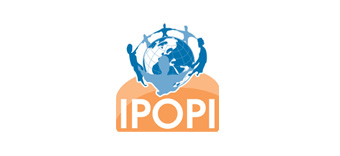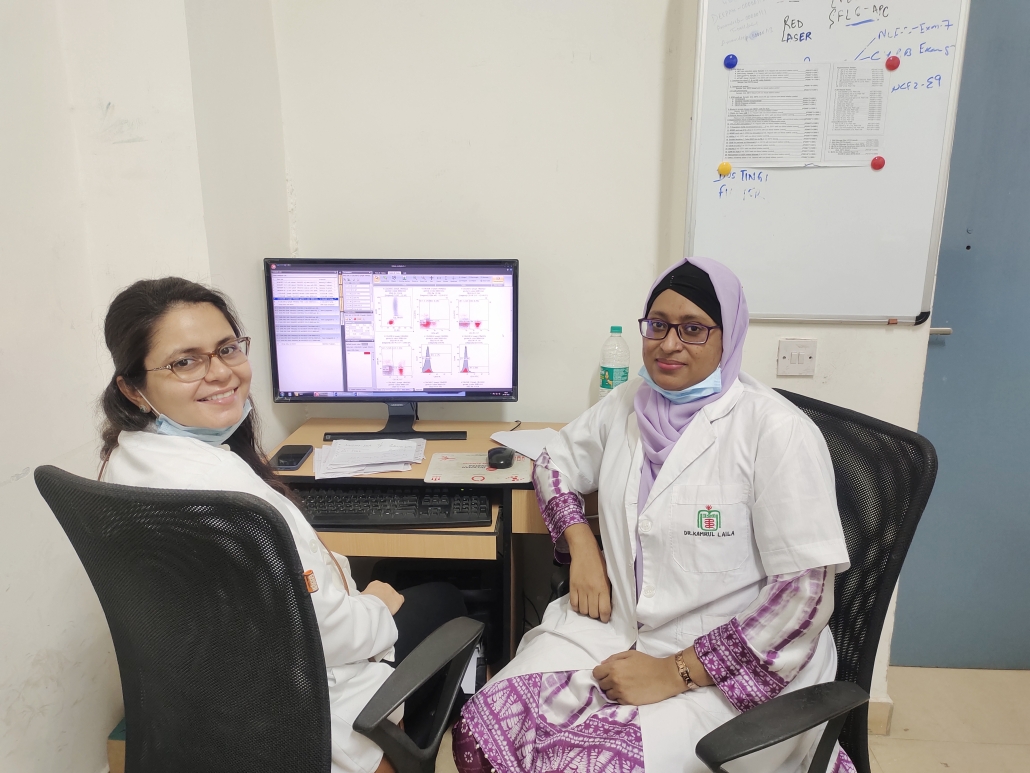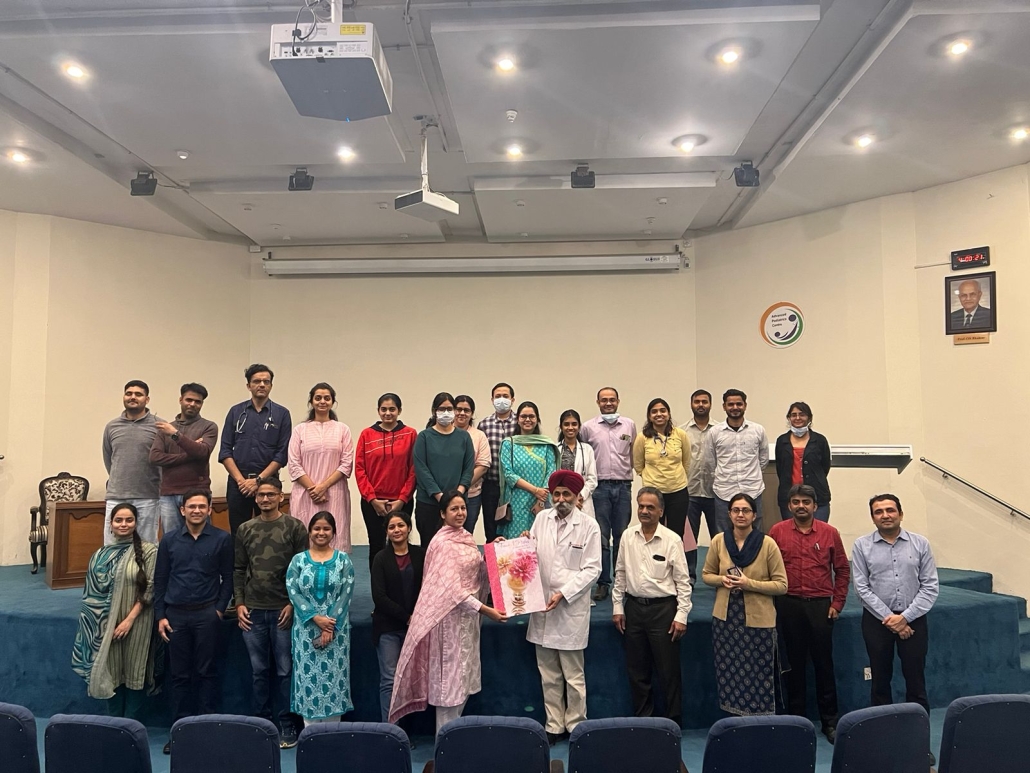July 18, 2023
PIDetect: Enhancing Diagnosis of Primary Immunodeficiency in Low- and Middle-Income Countries
Primary immunodeficiencies (PIDs) are believed to affect around 6 million people worldwide, but 70 to 90% of patients do not have access to proper care. The key factor behind these numbers is a low diagnosis rate, particularly in low- and middle-income countries (LMIC). To address this problem, IPOPI has launched the PIDetect programme, which provides intensive training to selected doctors from LMIC to improve their skills in recognising and diagnosing PIDs. The programme is hosted in a PID reference centre and is aimed both at clinicians and laboratory scientists with an interest in PIDs. It comprises intensive clinical and/or laboratory training tailored to the individual needs and background of each attendee, followed by a local implementation activity whereby the acquired expertise is shared more widely with doctors in the target country.
Dr. Laila Kamrul and Dr. Ismet Nigar, healthcare professionals from Dhaka, Bangladesh, took part in the IPOPI PIDetect program in 2022 and 2023. During their participation, they received four weeks of clinical and laboratory diagnostic training provided by Prof. Surjit Singh at the Chandigarh Post Graduate Institute of Medical Education and Research, (PGIMER) India.
PID diagnostics and care in Bangladesh
We need skilled resources to build a vibrant health sector to detect and treat PID cases in the coming years – Dr. Laila Kamrul
The Bangabandhu Sheikh Mujib Medical University (BSMMU) in Dhaka, where both doctors are employed, is the only tertiary care centre in Bangladesh, a country counting 170 million inhabitants, regularly receiving suspected PID cases. The doctors describe the environment for PID patient care in Bangladesh as challenging due to the limited laboratory facilities and the high cost of specific management, such as for the use of intravenous immunoglobulin therapy.
Training content and learning environment
Prof. Surjit Singh is very much supportive of the foreign trainee – Dr. Ismet Nigar
The skills that have been learnt are actually helpful – Dr. Laila Kamrul
As a paediatrician, Dr. Kamrul had the opportunity to observe and manage a variety of PID cases, many of which she had never encountered before. She also learned about new diagnostic techniques and investigations that are not currently available in her home country. Dr. Nigar on the other hand is a laboratory scientist who specialises in microbiology and immunology. During her training, she broadened her expertise in laboratory procedures for PID diagnosis and gained knowledge on various aspects of immunological testing. Importantly, Dr. Kamrul and Dr. Nigar agreed that the learned skills are particularly useful and can effectively be implemented in their home institution.
Sharing newly learned skills
The aim of PIDetect is also to help spread the newly acquired knowledge on PID diagnostics more widely throughout the target country. Useful dissemination tools suggested by Dr. Kamrul and Dr. Nigar include delivering presentations to fellow colleagues, presenting cases at conferences, and including the topic in student classes and tutorials. Next to these initiatives, IPOPI will support the organisation of a national implementation activity to help share the expertise acquired during the training. The exact format of this activity is still to be defined in collaboration with BSMMU in Dhaka, but it will very likely be a hybrid activity to encourage a wide attendance.
Lastly, we would like to thank Prof. Surjit Singh and his team for welcoming Dr. Kamrul and Dr. Nigar to his institute and providing them with such an enriching training experience. IPOPI will work closely with the doctors to disseminate the expertise acquired during the training to benefit more healthcare professionals in Bangladesh who may diagnose and treat patients with PID.


